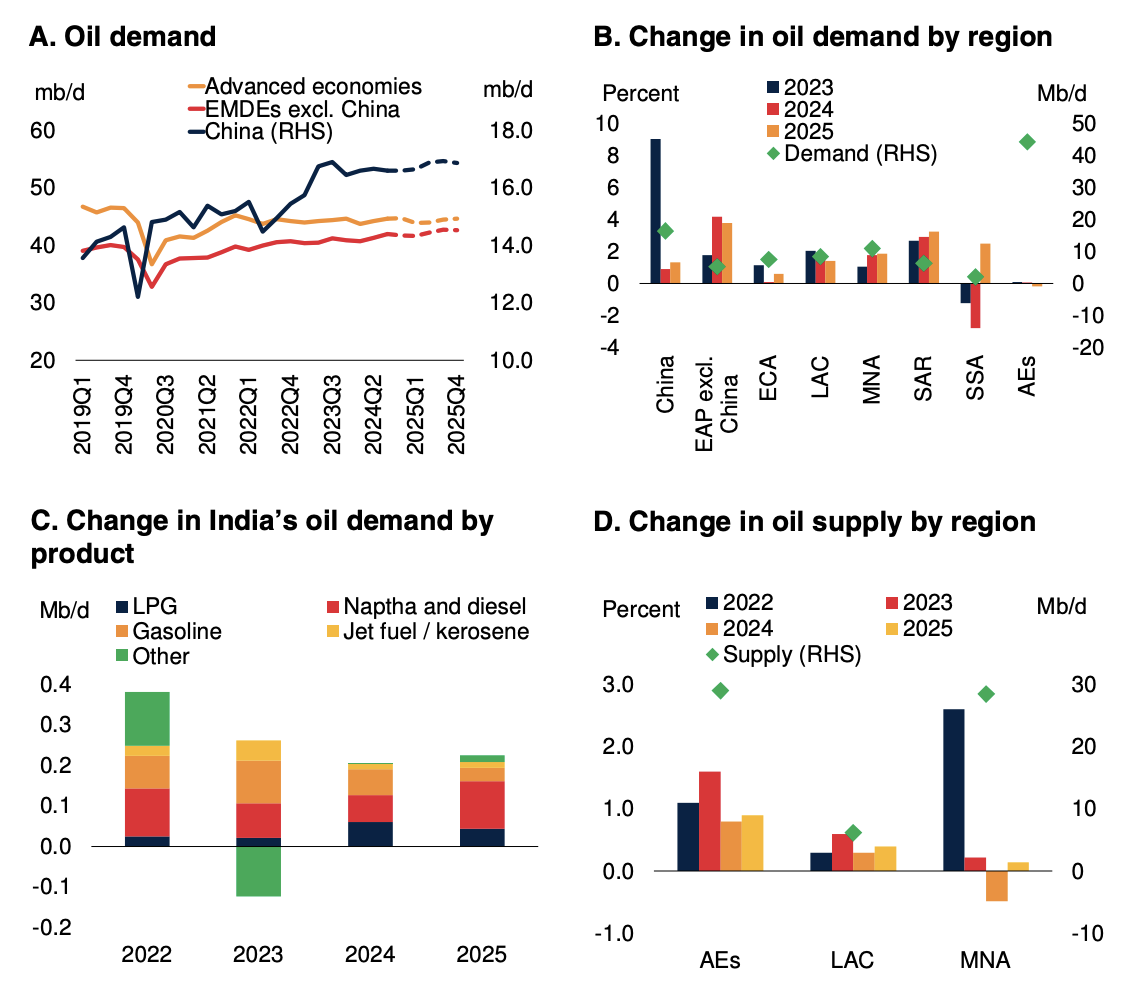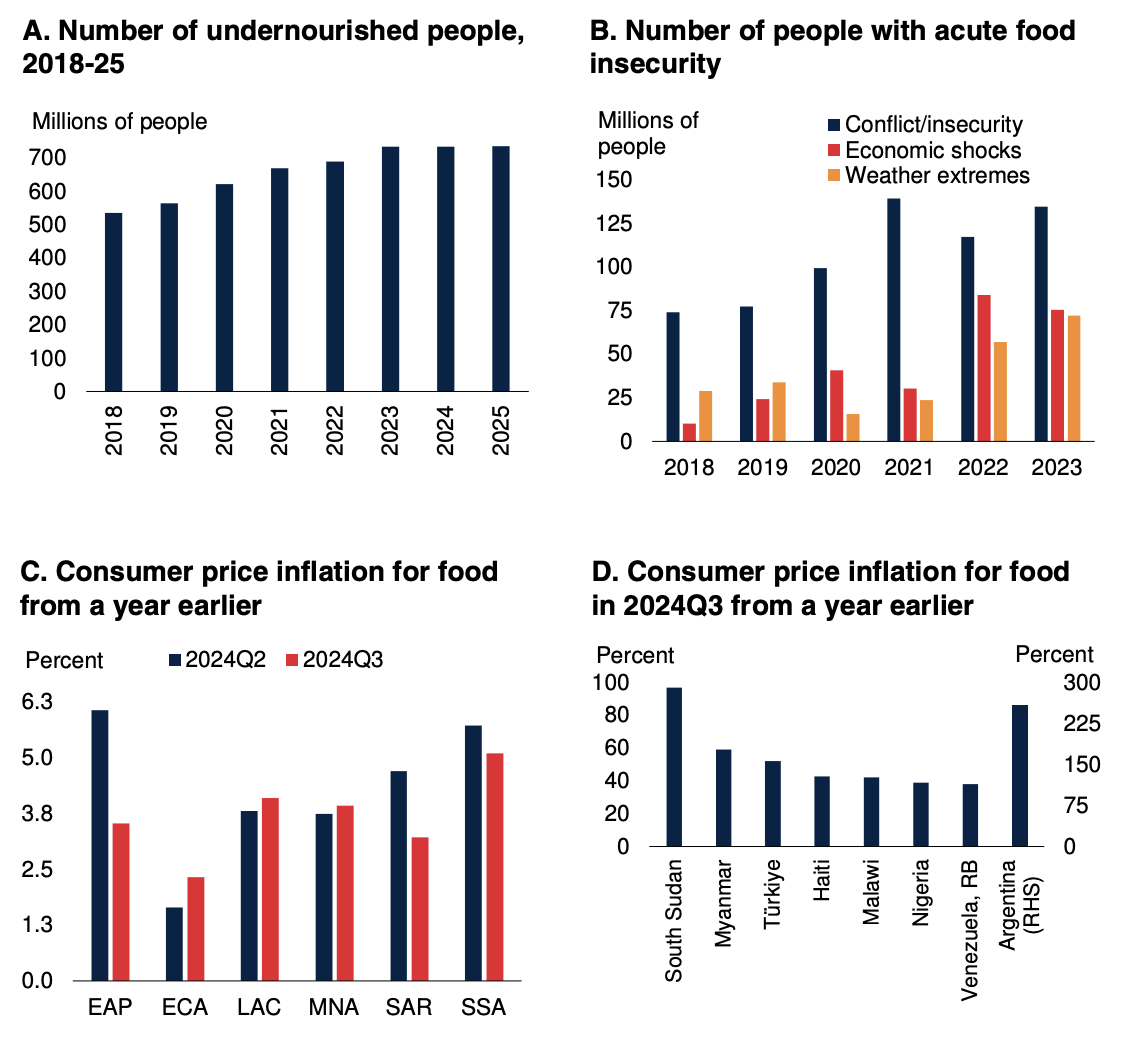The latest Commodity Market Outlook for October 2024 reveals that Central Asia and the world are facing significant economic pressures due to stagnating oil demand and persistent food inflation. These challenges are compounded by global shifts in commodity demand and rising costs, impacting the region’s energy and food sectors. The report highlights the need for Central Asian economies to adapt swiftly, as these pressures are likely to affect fiscal stability and socio-economic resilience across the region.

Declining Oil Demand and Supply Dynamics
Across Europe and Central Asia, oil demand has stagnated as economic activity slows and alternative energy sources gain traction. According to the report, “oil demand stalled in Europe and Central Asia (ECA),” contrasting with increased demand in South Asia and the Middle East. This decline reflects a regional trend toward energy diversification, alongside reduced industrial demand, which has impacted Kazakhstan and other Central Asian oil suppliers. While OPEC+ production cuts continue to support prices, potential surpluses are projected for 2025, which could pressure oil revenues across Central Asia if demand remains weak.
Persistent Food Inflation Intensifies Food Security Concerns

Food inflation remains a significant issue, with food prices in Europe and Central Asia ticking up slightly in Q3 2024, diverging from declining food inflation trends seen in East Asia and Sub-Saharan Africa. The median rate of global food price inflation is now around 3.6%, but inflation in the ECA region persists at higher rates due to disrupted supply chains and rising production costs . “The persistence of high food inflation highlights the ongoing food security concerns in Central Asia,” the report notes, emphasizing how inflation disproportionately affects low-income households and vulnerable communities in the region.
Impact on Economic Stability and Resilience
Central Asia’s economies, heavily dependent on commodity exports, face additional fiscal strain due to weaker global growth forecasts, particularly from China. The region’s reliance on energy exports makes it susceptible to global demand swings, especially as the slowdown in China and shifts in global energy preferences may reduce demand for Central Asia’s oil and gas exports. The report indicates that “a deceleration in global demand could strain Central Asia’s economic resilience,” especially as the region seeks to balance growth with fiscal responsibility .
Strategic Focus on Adaptation and Policy Response
The current economic landscape calls for adaptive measures to strengthen resilience. Central Asian governments are advised to invest in food security initiatives, enhance energy diversification, and pursue sustainable economic policies to counteract inflationary pressures. By focusing on these priorities, the region aims to stabilize its economies amid volatile global market conditions and ensure long-term socio-economic stability.
Uzbekistan's central bank also recently released its draft budget for 2025 with forecast of steady GDP growth rate of around 5% and capped the budget deficit at 3% of the total GDP.
Comments (0)